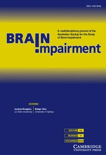
Brain Impairment
Scope & Guideline
Pioneering research in neuropsychology and therapy.
Introduction
Aims and Scopes
- Traumatic Brain Injury (TBI) Research:
The journal publishes research on various aspects of TBI, including its effects, rehabilitation strategies, and long-term outcomes. - Cognitive Rehabilitation and Assessment:
A significant focus is placed on cognitive rehabilitation techniques, assessment tools, and interventions for individuals with cognitive impairments related to brain injuries. - Psychosocial Aspects of Brain Injury:
Research addressing the psychosocial impacts of brain injury on patients and families, including emotional well-being, social integration, and quality of life. - Multidisciplinary Approaches to Rehabilitation:
The journal promotes studies that involve multidisciplinary teams in rehabilitation practices, highlighting the importance of collaboration among health professionals. - Innovative Interventions and Technologies:
Research on new and emerging interventions, including the use of technology, assistive devices, and novel therapeutic approaches in brain injury rehabilitation. - Cultural and Community Perspectives:
Exploring the impact of cultural contexts and community resources on rehabilitation and support for individuals with brain impairments.
Trending and Emerging
- Telehealth and Remote Interventions:
Recent publications show an increased focus on telehealth and remote interventions for brain injury rehabilitation, highlighting the need for accessible treatment options. - Psychological and Emotional Health:
There is a rising emphasis on the psychological and emotional aspects of recovery, including mental health interventions and the impact of anxiety and depression on rehabilitation outcomes. - Cultural Competency in Rehabilitation:
Emerging themes include the importance of cultural competency in rehabilitation practices, especially for Indigenous populations and other culturally diverse groups. - Family and Caregiver Support:
Research increasingly focuses on the experiences and needs of families and caregivers, recognizing their critical role in the recovery and rehabilitation process. - Technology-Enhanced Rehabilitation Tools:
The integration of technology, such as virtual reality and mobile applications, is becoming a prominent theme, with studies exploring their effectiveness in rehabilitation. - Community-Based Rehabilitation Models:
A shift towards community-based models of rehabilitation is evident, emphasizing the role of community resources and support networks in aiding recovery.
Declining or Waning
- Traditional Rehabilitation Methods:
There seems to be a decreasing focus on conventional rehabilitation methods, as research increasingly emphasizes innovative approaches and technology-driven interventions. - Generalized TBI Awareness Campaigns:
Public awareness campaigns related to TBI may be receiving less attention in favor of more targeted research on specific interventions and outcomes. - Single-Disciplinary Perspectives:
Research that focuses solely on a single discipline without interdisciplinary collaboration appears to be declining, reflecting a broader trend towards integrated approaches. - Longitudinal Studies without Immediate Application:
There is a noticeable reduction in studies that offer long-term data without practical applications, as the journal increasingly favors research with direct implications for clinical practice. - Studies on Non-Acquired Brain Injuries:
Research focusing on brain injuries not classified as acquired, such as congenital or hereditary conditions, seems to be diminishing in favor of a more acute focus on acquired brain injuries.
Similar Journals
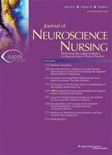
JOURNAL OF NEUROSCIENCE NURSING
Leading the Way in Neuroscience Nursing ResearchJournal of Neuroscience Nursing, published by Lippincott Williams & Wilkins, stands as a pivotal resource within the interdisciplinary field of neuroscience and nursing. With an ISSN of 0888-0395 and E-ISSN of 1945-2810, this journal has been dedicated to advancing knowledge and practice in neuroscience nursing since its inception in 1986. It aims to provide a platform for the dissemination of significant research, clinical guidelines, and innovative care strategies that shape the future of nursing in the neurological domain. The journal is recognized in various categories, achieving a Q1 ranking in Medical and Surgical Nursing and a Q3 ranking in Neurology (Clinical) as of 2023, highlighting its influence and relevance in the medical community. Although it does not operate on an open-access model, the journal's commitment to quality is evidenced by its strong Scopus rankings, including a notable rank of #3 out of 26 in Nursing - Medical and Surgical Nursing, reflecting its vital role in fostering scholarly discourse. Located in Philadelphia, PA, the Journal of Neuroscience Nursing is an essential publication for researchers, practitioners, and students dedicated to improving patient outcomes and advancing the field of neuroscience nursing.

Zeitschrift fur Neuropsychologie
Connecting Scholars and Practitioners in NeuropsychologyZeitschrift für Neuropsychologie, published by HOGREFE AG in Switzerland, stands as a vital resource for scholars and practitioners in the fields of neuropsychology, cognitive neuroscience, and psychiatry. With an ISSN of 1016-264X and E-ISSN 1664-2902, this journal aims to disseminate high-quality research that enhances understanding of cognitive processes and their implications for mental health. While currently classified in the fourth quartile across relevant categories, including Cognitive Neuroscience and Neuropsychology, it offers valuable insights that contribute to the emerging discourse in these areas. By publishing both empirical studies and theoretical papers, it encourages interdisciplinary dialogues among researchers and clinicians. Although the journal is not Open Access, its role in advancing neuropsychological research is significant, fostering academic linkages from its base in Bern, Switzerland. By continually focusing on the latest advancements and fostering innovative approaches within the field, Zeitschrift für Neuropsychologie remains a crucial platform for those committed to exploring the complexities of the human mind.
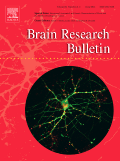
BRAIN RESEARCH BULLETIN
Fostering scholarly dialogue in the realm of neuroscience.BRAIN RESEARCH BULLETIN is a leading academic journal published by PERGAMON-ELSEVIER SCIENCE LTD, dedicated to the dissemination of high-quality research in the interdisciplinary field of neuroscience. Since its inception in 1976, this journal has served as a vital platform for researchers, professionals, and students interested in a broad spectrum of topics within neuroscience, making significant contributions to the understanding of brain function and its associated disorders. With a commendable impact factor and a current Scopus rank of #35 out of 113 in general neuroscience, the journal holds a Q2 quartile ranking, underscoring its relevance and influence in the academic community. BRAIN RESEARCH BULLETIN invites submissions of original articles, reviews, and brief communications, enhancing scholarly communication within this dynamic field. Although the journal is not open access, it ensures widespread reach and impact through various subscription models, allowing access to pivotal findings that pave the way for future research advancements. For researchers aiming to share impactful discoveries and insights within the neuroscience community, BRAIN RESEARCH BULLETIN remains an essential outlet.
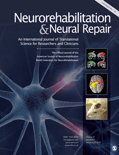
NEUROREHABILITATION AND NEURAL REPAIR
Empowering Progress in Neural Repair.NEUROREHABILITATION AND NEURAL REPAIR, published by SAGE Publications Inc, is a leading journal in the fields of neurology and rehabilitation, addressing critical issues in neurorehabilitation across a broad spectrum of neurological disorders. With an impressive impact factor and consistently ranked in the Q1 category in both Neurology and Rehabilitation, this journal is esteemed for its rigorous peer-reviewed research contributing to advancements in clinical practice and rehabilitation strategies. The journal boasts an HIndex that reflects its global influence and is highly regarded among professionals and researchers, ranking in the top tiers of Scopus metrics across various categories. Since its inception in 1987, NEUROREHABILITATION AND NEURAL REPAIR has fostered innovative research aimed at improving outcomes for patients with neurological impairments, making it a crucial resource for those engaged in clinical research and therapeutic interventions. Explore this prestigious journal to stay at the forefront of developments in neurorehabilitation, with access options available for diverse readerships.
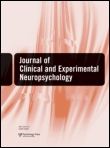
JOURNAL OF CLINICAL AND EXPERIMENTAL NEUROPSYCHOLOGY
Connecting empirical research with clinical application.The Journal of Clinical and Experimental Neuropsychology, published by Taylor & Francis Inc, stands as a pivotal resource in the realms of clinical psychology and neuropsychology. With an ISSN of 1380-3395 and an E-ISSN of 1744-411X, this journal has been a hallmark of scholarly excellence since its inception in 1985, continuing to shape the fields until 2024. It is renowned for its rigorous peer-reviewed articles and has garnered significant recognition, achieving a Q2 ranking in Clinical Psychology and Q3 rankings in various other relevant categories as of 2023. Serving as a bridge between clinical practice and experimental research, the journal underscores the critical role of neuropsychological assessment and intervention in enhancing mental health outcomes. Although not an open-access journal, it provides significant insights and empirical data that are crucial for researchers, clinicians, and students dedicated to advancing the understanding of cognitive functioning and psychological health. The journal's commitment to disseminating high-quality research contributes to its reputation and impact, making it a vital resource for those engaged in the study of neuropsychology and its clinical applications.
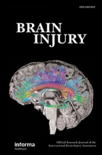
BRAIN INJURY
Advancing understanding of traumatic brain injury.BRAIN INJURY is a leading international journal published by Taylor & Francis Ltd, dedicated to advancing the study of traumatic brain injury and its extensive neurological implications. With a rich history since its inception in 1987, this journal has established itself as a vital resource for researchers, practitioners, and policymakers in fields such as Neurology, Neuroscience, and Developmental Psychology. Holding a commendable Q2 quartile ranking in both Developmental and Educational Psychology and Clinical Neurology, as well as a Q3 ranking in Miscellaneous Neuroscience, BRAIN INJURY provides a platform for high-quality research that drives innovation in clinical practice and rehabilitation strategies. Although the journal is not open access, it continues to facilitate wide-reaching scholarly communication across the globe, contributing significantly to the understanding of brain injuries and their effects. Researchers, professionals, and students will find BRAIN INJURY a critical resource for both new insights and comprehensive reviews within this vital area of health science.
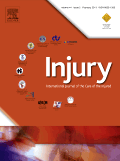
INJURY-INTERNATIONAL JOURNAL OF THE CARE OF THE INJURED
Bridging Disciplines for Enhanced Patient OutcomesINJURY - INTERNATIONAL JOURNAL OF THE CARE OF THE INJURED, published by Elsevier Science Ltd, is a pivotal resource in the field of injury management, bridging the gap across Emergency Medicine, Orthopedics, and Surgery. With a legacy dating back to 1969, this esteemed journal is recognized for its high impact, holding a Q1 ranking in Emergency Medicine and Surgery, and a Q2 ranking in Orthopedics and Sports Medicine as of 2023. It is ranked 26th out of 109 in Emergency Medicine by Scopus, placing it in the 76th percentile, which underscores its authority and influence within the medical community. The journal's objective is to disseminate vital research findings and clinical practices that enhance the care of injured patients, making it an essential reading for researchers, clinicians, and students alike. With ongoing contributions until 2024, INJURY continuously evolves with the field, ensuring that it remains at the forefront of advancements in injury care and rehabilitation.

Cognitive Neurodynamics
Mapping the Pathways of Neurobiological Mechanisms.Cognitive Neurodynamics is a leading journal in the field of cognitive neuroscience, published by Springer in the Netherlands. With an ISSN of 1871-4080 and an E-ISSN of 1871-4099, this journal has established itself as a prominent platform for innovative research from its inception in 2007, continuing to enrich the academic landscape through 2024. Recognized for its significant contributions, Cognitive Neurodynamics holds a Q2 quartile ranking in cognitive neuroscience and impressively ranks #27 out of 115 in the Scopus database, placing it in the 76th percentile among its peers. While the journal is not open access, it offers a wealth of studies focusing on the intricate dynamics of cognitive processes and neurobiological mechanisms, making it essential reading for researchers, professionals, and students alike. Its objective is to bridge the gap between theoretical insights and practical applications, fostering a deeper understanding of cognition through multidisciplinary approaches. Explore the latest advancements in cognitive dynamics and contribute to the evolving dialogue within this fascinating field.
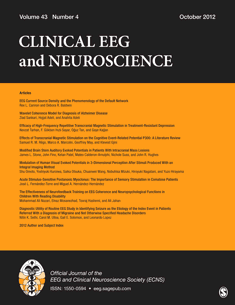
CLINICAL EEG AND NEUROSCIENCE
Pioneering Research in ElectroencephalographyCLINICAL EEG AND NEUROSCIENCE, published by SAGE Publications Inc, stands as a pivotal journal in the fields of neurology and neuroscience, with a focus on the latest research and advancements in clinical electroencephalography and neurophysiology. Since its inception in 1970, the journal has provided a platform for rigorous scholarly work, offering valuable insights into neurological disorders and EEG technology. With its current categorization in the Q2 and Q3 quartiles across various subfields of medicine and neurology, it ranks prominently in the Scopus database, emphasizing its significance in academic discourse. The journal's commitment to disseminating high-quality research is underscored by its open access options, facilitating broader accessibility to its published findings. For researchers, clinicians, and students alike, CLINICAL EEG AND NEUROSCIENCE remains an essential resource for keeping abreast of the evolving landscape of neurological studies.

Neurology International
Empowering Knowledge in Neurological DisordersNeurology International is a prestigious open-access journal published by MDPI that has been making significant contributions to the field of neurology since its establishment in 2009. With its ISSN 2035-8377, this journal is committed to disseminating high-quality, peer-reviewed research that addresses a wide range of clinical topics in neurology. Operating out of Basel, Switzerland, the journal holds a respectable Q2 ranking in the clinical neurology category as of 2023, indicating its influence and dedication to advancing scientific knowledge. Researchers and practitioners alike will find value in its comprehensive articles, which are readily accessible to a global audience, facilitating the sharing of innovative findings and clinical practices. As it converges towards 2024, Neurology International continues to provide a vital platform for scholarly discourse, aiming to improve patient outcomes and enhance our understanding of neurological disorders.